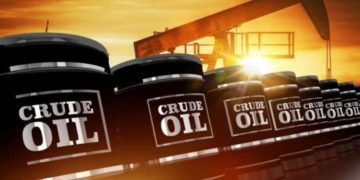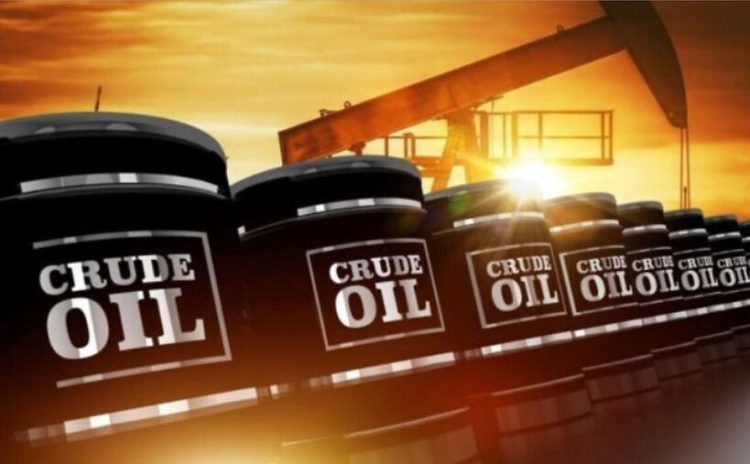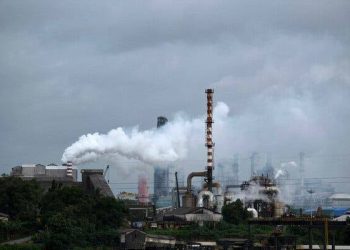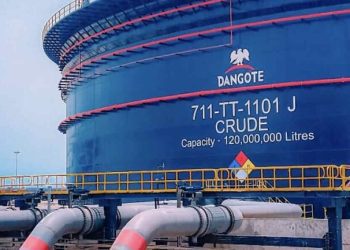Nigeria’s crude oil prices are inching closer to the Federal Government’s benchmark amid rising tensions in the Middle East, where drone attacks on Iraqi oilfields have disrupted production and sparked renewed concerns over global supply.
As of this week, Nigerian crude grades including Bonny Light, Brass River, and Qua Iboe were trading at $72.50 per barrel, just $2.50 shy of the benchmark set by the Federal Government. This price movement follows the fourth round of explosive drone strikes targeting oil infrastructure in the Kurdistan region of Iraq, which has forced a major regional production halt.
Drone Strikes Disrupt Global Supply
The attacks hit key oilfields such as Tawke, Peshkabir, and Sarsang, managed by DNO ASA and HKN Energy, resulting in fires and shutdowns. Though no group has claimed responsibility, intelligence sources suspect Iranian-backed militias were behind the operations. Production in Iraqi Kurdistan has now dropped by 140,000-150,000 barrels per day, down from the region’s average output of 280,000 bpd.
These developments have rattled global oil markets already buoyed by seasonal demand. Global oil consumption in the first half of July averaged 105.2 million barrels per day, up by 600,000 bpd from the same period last year.
Nigeria’s Oil Output Rises Amid Push to Expand OPEC+ Quota
Meanwhile, Nigeria is ramping up efforts to increase its crude oil production quota within the OPEC+ framework. The Group Chief Executive Officer of NNPCL, Bashir Ojulari, has called for Nigeria’s output ceiling to be raised to 2 million barrels per day from its current 1.5 million bpd.
Nigeria, Africa’s largest oil producer, has struggled with oil theft and pipeline vandalism, which have historically held production below potential. However, recent figures from the Nigerian Upstream Petroleum Regulatory Commission (NUPRC) show a rebound. In June 2025, Nigeria’s crude production hit 1.5 million bpd, officially meeting 100.4% of the OPEC+ quota. When condensates are added, total oil output reached approximately 1.7 million bpd, up from 1.65 million bpd in May.
Ojulari emphasized that Nigeria’s growing internal demand, especially from the Dangote Refinery, justifies the need for fewer restrictions on production. The 650,000-bpd Dangote Refinery, which became fully operational in late 2022, is fueling a surge in regional demand for petroleum products and creating new economic fuel demand centers across West Africa.
Global Investments in Nigerian Energy Sector
Nigeria’s improving production landscape is also attracting fresh investment. ExxonMobil has committed $1.5 billion toward deepwater oil and gas exploration off the Nigerian coast. In addition, Shell and TotalEnergies have revealed plans to ramp up their Nigerian production portfolios by 2027.
- Shell is targeting first production from the Bonga North deepwater project by 2027.
- TotalEnergies is also on track to begin gas output from its Ubeta gas field in the same year.
These investments signal renewed confidence in Nigeria’s upstream potential, driven by policy reforms and stabilizing security conditions in the oil-producing regions.
Brent, WTI Prices Hover as Market Adjusts to Volatility
Brent crude settled at $69.81 per barrel, while West Texas Intermediate (WTI) traded at $68 per barrel. Despite falling more than 1% for the week, oil prices remain supported by geopolitical risk and strong summer demand.
- U.S. crude stockpiles have declined, prompting expectations of increased exports.
- Asian refinery demand has picked up following seasonal maintenance, further tightening global supply.
- Oil prices are projected to remain supported through Q3, with some relief expected in Q4 as supply conditions improve.
Still, the market remains cautious due to uncertainty over U.S. trade and tariff policy, which analysts say won’t be resolved until after August 1. Additionally, the anticipated phase-out of production cuts by top oil producers post-summer could lead to a more balanced global oil supply scenario.
Kurdistan Output Halved as Conflict Persists
The semi-autonomous Kurdistan region of Iraq has seen its production slashed to 140,000-150,000 bpd, down from 280,000 bpd, following the recent string of drone attacks. This steep decline in output adds pressure to already-tight markets and further reinforces the bullish outlook for crude in the near term.
































